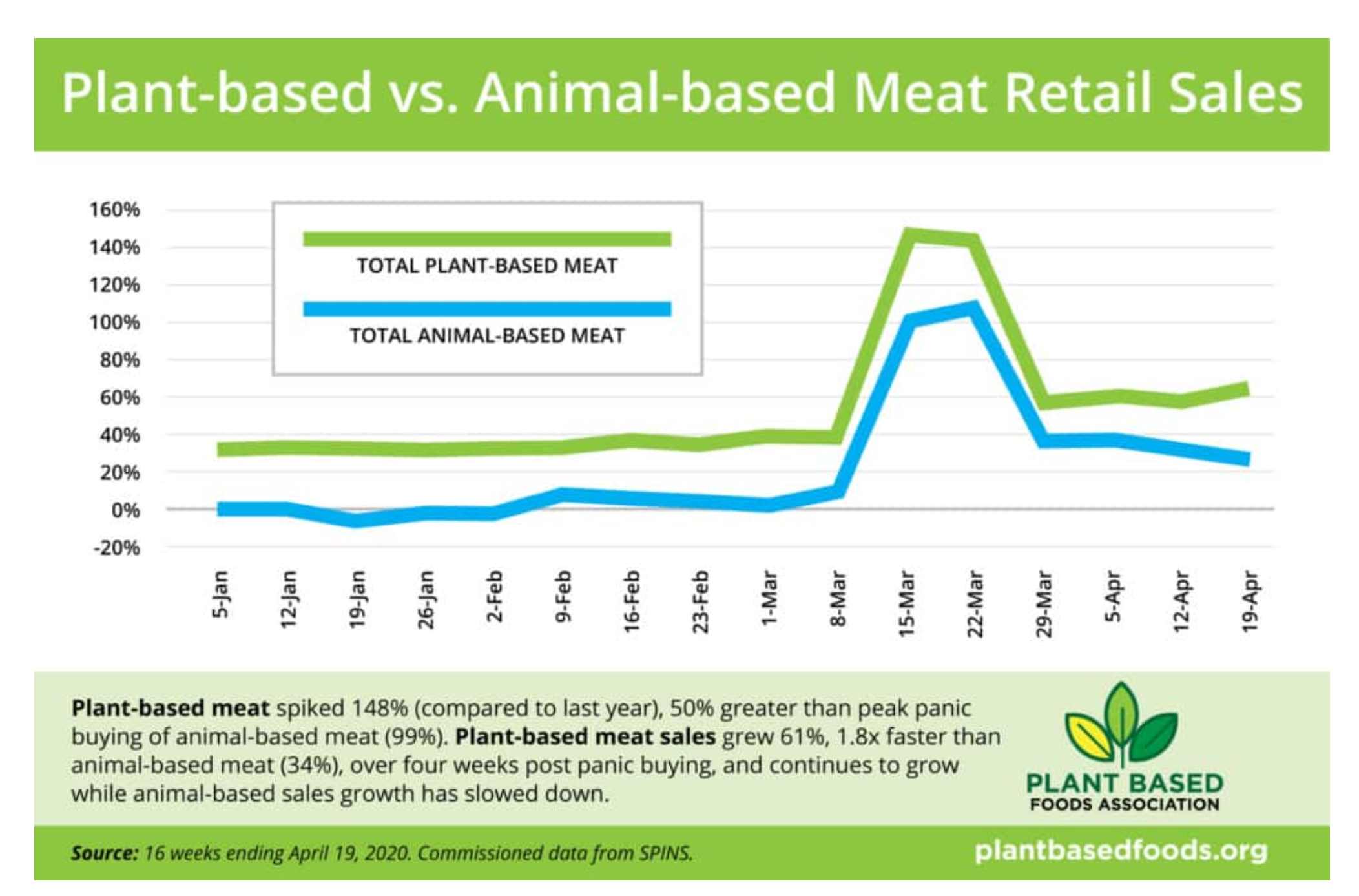Amidst the multiple shocks of the pandemic, people have become even more focused on health and food supply issues. With this as a backdrop, leading plant-based food company Beyond Meat, is making a game-changing TV pitch to re-examine what we eat. The question they’re essentially asking is what if: we changed what we eat and the planet warmed less; fewer people got sick; deforestation was dramatically reduced; water and air became cleaner and fresher; fewer animals suffered or were killed; and, pandemics became a thing of the past not a thing of the future? And, what if, the new food tasted as good, possibly even better than what we’re eating now, why wouldn’t we step up to make that change?
In its first ever TV commercial — narrated by Academy Award winner Octavia Spencer — which debuted last week during coverage of an NBA game, Beyond Meat targets mainstream meat-eaters with a proposition that would put them on the right side of issues such as climate change, biodiversity loss, and preventing the next pandemic. All this would be gained by choosing to eat a product that offers a painless swap on the grill.
Although the Beyond Meat burger is not exactly a health food -- it’s high in salt and fat – it has no cholesterol and only contains about half the saturated fat and is lower in sodium than a meat-based burger. It also delivers a comparable 20 gms of protein. However, if you consider the indirect health benefits, of the plant-based version, they are massive.
First, the overcrowded conditions in factory farms where animals are densely packed together are widely recognized by health experts as breeding grounds for zoonotic diseases that jump from animals to humans. Although the current pandemic is believed to have resulted from the consumption of wild animals, there are plenty of examples of zoonotic diseases jumping from farm animals, including the infamous 1918 Spanish flu which originated in a pig farm in Kansas. Other recent examples include a bird flu which jumped repeatedly from chickens to workers in poultry farms in China between 1997 and 2006, while the global outbreak of swine flu in 2009 was traced back to Mexican and US hog operations.
Second, because burgers made from plants don’t involve the overuse of antibiotics given to factory farmed animals to prevent the diseases fostered by overcrowding, they don’t contribute to the rise of antibiotic resistance which experts and health organizations have been warning about for years and which could spell the end of modern medicine
And, third, there is the direct impact on the health of the planet. According to a study from the University of Michigan, the Beyond Meat burger uses 99% less water, 93% less land, and emits 90% fewer GHGs, than its animal-based counterpart – in this instance a quarter-pound beef burger. Similarly, plant-based food does not produce the air and water pollution caused by spraying and run-off from animal waste.
The multiple fault lines in our animal-based food system have become increasingly exposed by the current pandemic e.g., interruptions in the supply chain that threaten our food security, and the harsh working conditions that compromise the safety of meat packing plant workers. A recent report shows that in early May, output in the US decreased by 41% for beef products and 36% for pork products compared with the same period last year, due to restrictions imposed by the pandemic.
Also, given the growing chorus of scientists and medical experts predicting another pandemic, it becomes a question of ‘when’ not ‘if’, and transitioning from the current system of obtaining protein from animals in densely packed factory farms has to be on the table.
Another advantage offered by a plant-based food supply chain is that it can be scaled up and down quickly – in a matter of weeks, rather than the months or years it takes to grow an animal – and it won’t result in the mass slaughter of millions of “unwanted” animals when the supply chain breaks down as happened this year.
Beyond Meat’s success is the highest profile example of the boom in plant-based meats. Along with those from Impossible Foods — and many smaller players — these products have experienced significant gains in sales in supermarkets and fast food chains over the last couple of years. And these sales have been super-charged by the pandemic.
Waiting in the wings are other food tech companies offering 3-D printed meats and cultured/cell-based meats. All of these products are riding a trend away from animal-based protein with a rising percentage of consumers looking to reduce the amount of meat they eat for health or ethical reasons, and lighten their carbon footprint. That said, plant-based foods still represent a tiny fraction of the overall market. However, a study by Meticulous Research predicts the plant-based food industry will grow to $75 billion by 2027. And its rate of growth is significantly higher than that of animal-based meat in richer nations.
The Beyond Meat commercial touches on many important issues including farmers transitioning to new forms of agriculture cultivating plant-based sources of protein such as pulses and grains. Featuring a cameo by NFL running back, Todd Gurley of the Atlanta Falcons, the ad paints a vision of not just a new way of producing our food so that it is healthier for people, the planet and animals, but it prompts us to make a cultural shift in how and why we choose the foods we eat. For example, it challenges us to see the cow as a friend and not a commodity or a thing to be eaten. This would represent a massive shift in our perception of farmed animals but a shift, nonetheless, that millions of people are already making.
The case for building a resilient and sustainable food system has never been clearer or more urgent.
Sign up below to receive “Planet Friendly News” every month.


